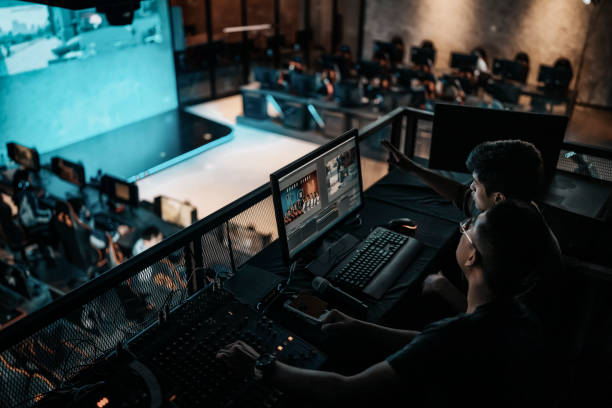A lighting technician is someone responsible for ensuring the stage is lit during a performance. They bring the dramatic atmosphere without the audience even realising. How do you get into the career?
If you’ve ever been to a concert, theatre performance, or even a film, you’ve likely been captivated by the magical interplay of lights that enhance the experience. Behind the scenes, there are skilled professionals known as lighting technicians who work tirelessly to create these mesmerising effects. But what qualifications do you need?
1. Education
While there’s no strict educational requirement to become a lighting technician, having school education or equivalent is typically necessary. Some technicians pursue formal education in technical theatre, or stagecraft. Often this is to gain some skills.
Others might go down the route of lighting design through vocational schools, community colleges, or university programs. These programs provide valuable training in lighting techniques, equipment operation, safety protocols, and industry standards.
2. Technical skills
A strong understanding of lighting equipment and technology is essential for success as a lighting technician. Technicians should be familiar with various types of lighting fixtures, control consoles, dimmers, and accessories.
They must know how to set up, operate, and troubleshoot lighting systems effectively. Proficiency in using lighting software and programming consoles is also valuable for creating and controlling complex lighting designs.
3. Practical experience
Hands-on experience is invaluable for aspiring lighting technicians. Many technicians gain practical experience through internships, apprenticeships, or entry-level positions in theatres. There’s also event production companies, or lighting rental shops.
Working alongside experienced professionals allows technicians to learn from real-world situations. They can go on to develop their skills, and build a portfolio of work. They could even find their next job through their current one.
4. Creativity and attention to detail
Creativity is a key attribute for lighting technicians, as they play a crucial role in shaping the visual atmosphere of a performance or event. Technicians should possess a keen eye for aesthetics, colour theory, and composition.
They must be able to interpret creative concepts and translate them into compelling lighting designs that enhance the mood and storytelling elements of a production. Attention to detail is also essential for executing precise lighting cues and ensuring consistency throughout.
5. Communication and collaboration
Effective communication and collaboration skills are vital for lighting technicians, as they often work closely with directors, designers, and other production team members. Technicians must be able to interpret technical requirements and artistic visions.
They need to be able to communicate their ideas and suggestions clearly, and collaborate with others to achieve the desired outcome. Flexibility and adaptability are also important, as lighting designs may need to be adjusted based on feedback or changing production needs.
6. Safety training
Safety is paramount in the entertainment industry, and lighting technicians must adhere to strict safety standards and protocols to protect themselves and others. Technicians should receive training in electrical safety, rigging practices, ladder safety, and emergency procedures.
They must be vigilant in identifying and mitigating potential hazards related to lighting equipment, power distribution, and rigging installations. Once safety trained, new doors will open. However, prior to this, many companies won’t offer you work.
While there is no one-size-fits-all path to becoming a lighting technician, acquiring a combination of education, technical skills, practical experience, creativity, communication abilities, and safety training is essential for success in this field.
Whether you’re drawn to the excitement of live events, the drama of theatre productions. Or, the magic of film and television, a career as a lighting technician offers the opportunity to illuminate the stage and bring stories to life in a truly illuminating way.







